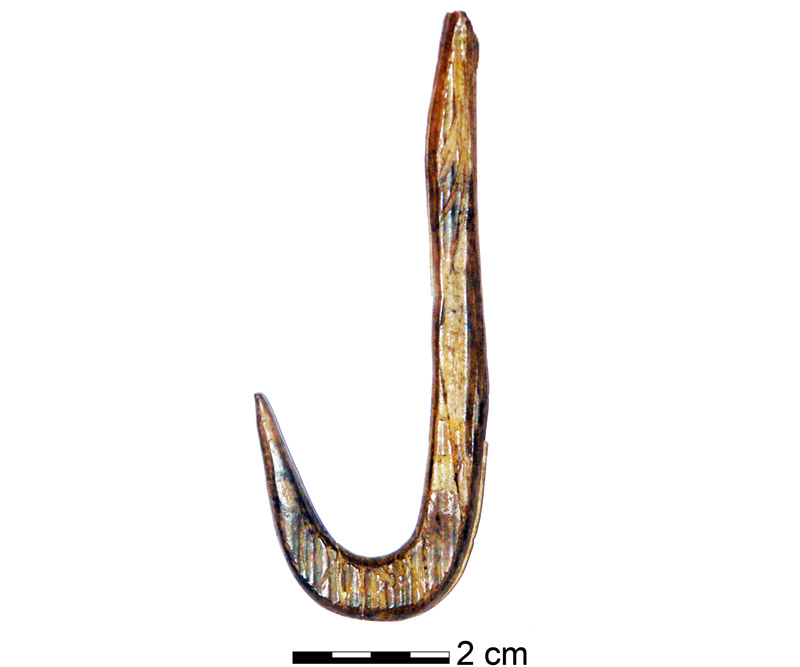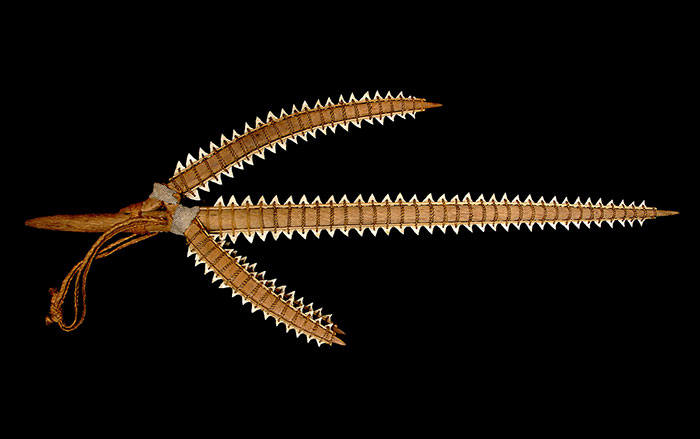
WUSTERMARK, GERMANY—Europe’s oldest-known fishhooks have been discovered in a field along with animal and fish remains. Five of the six 12,300-year-old hooks had been carved from reindeer or elk bones; the sixth hook was carved from the 19,000-year-old tusk of a mammoth. It had been thought that Paleolithic hunter-gatherers just speared slow-moving fish such as salmon. The hooks suggest that they also caught faster eel, perch, and pike in lakes as the climate became warmer. “These people had strong ideas to use the new resources of this changing environment,” said Robert Sommer of the University of Kiel.









